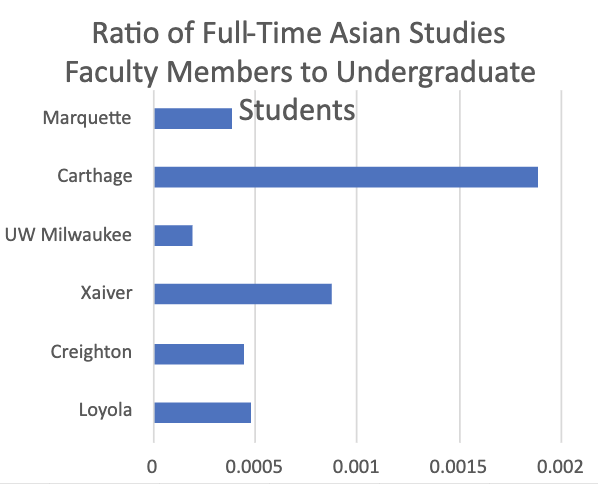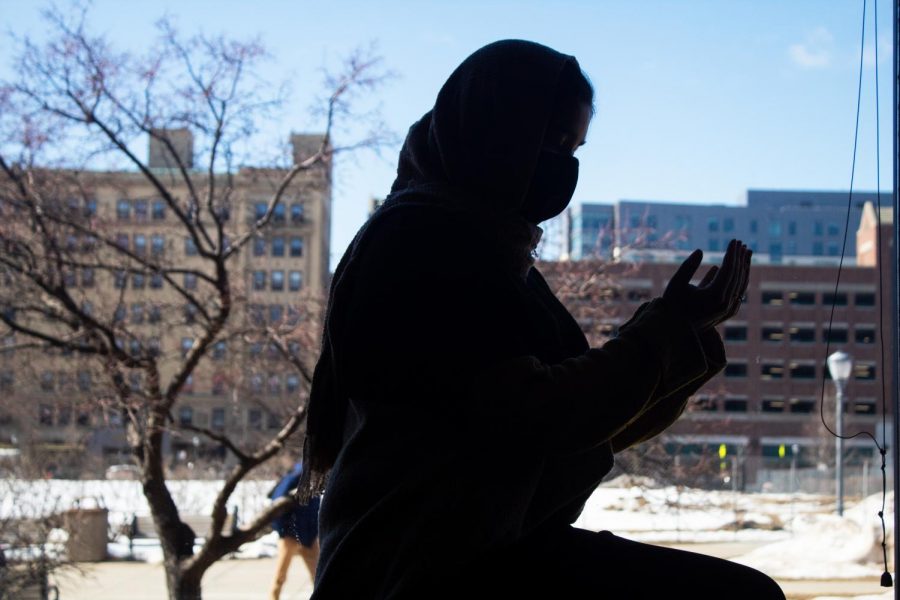The Marquette Medical Clinic said there are no confirmed or suspected cases of coronavirus at Marquette University or in broader Milwaukee, but some students who have traveled internationally faced incidents of avoidance from others on campus.
The Jan. 30 letter from the Medical Clinic states it is “closely monitoring the recent outbreak” in conjunction with the Milwaukee Health Department. One case was reported in Wisconsin in an individual who was exposed to the virus while visiting China, according to the Wisconsin Department of Health Services. The department said the risk of contracting the illness is low. Despite this, University Vice Provost John Su indicated recent incidents of avoidance in a recent email to faculty and staff.
The coronavirus outbreak relates to a strain of viruses that come from the common cold, Severe Acute Respiratory Syndrome and Middle East Respiratory Syndrome, according to the World Health Organization website. The current strain of the outbreak was not detected before the recent cases, giving it the official name of “novel coronavirus” from the WHO. Symptoms include cough, difficulty breathing and fever, according to the Wisconsin Department of Health Services.
The first cases of coronavirus were found in the city of Wuhan, China, toward the end of 2019. Since then, more than 40,000 individuals have been infected worldwide with 250 different cases in 25 different countries. In the United States, twelve people tested positive for the illness, according to the Centers for Disease Control and Prevention. Another 68 U.S. cases are pending, and more than 300 cases tested negative for coronavirus.
“The scary part is that this could become a worldwide epidemic,” Madisen Donovan, a first-year student in the College of Health Sciences, said.
The World Health Organization declared the outbreak an official “public health emergency” Jan. 30.
Concerns about the coronavirus outbreak have contributed to perceived xenophobia — or fear of individuals from other countries — at the University of California-Berkley. An Instagram page affiliated with the university posted a photo listing “fears about interacting with those who might be from Asia” as a “normal reaction” to information of coronavirus unfolding.
The photo was deleted from the Instagram page and the university apologized via Twitter.
“We apologize for our recent post on managing anxiety around Coronavirus. We regret any misunderstanding it may have caused and have updated the language in our materials,” the Jan. 30 Twitter apology reads.
At Marquette, Su said incidents have affected colleagues and students.
“I’m asking you to be supportive of our faculty, students and staff who may have traveled internationally and could be harmed by unsubstantiated fear or avoidance from others,” Su wrote in an email to faculty and staff.
Su declined to provide details on any specific incidents of avoidance or fear on campus.
“These issues are occurring nationally,” Su said in a later email. It is unclear exactly what issues Su’s statement refers to.
Anjali Patel, a junior in the College of Communication, said she is concerned about Asian groups being targeted on campus after the coronavirus outbreak. She said she is not concerned about the illness despite its recent spread in certain parts of the world.
Other students, including Veronica Castro, a junior in the College of Arts & Sciences, Brian Jasperson, a junior in the College of Health Sciences and Markus Johnson, a sophomore in the College of Business Administration, similarly said they are not concerned about the virus.
University spokesperson Chris Stolarski said in an email that students, faculty and staff who traveled internationally and do not show symptoms of coronavirus “pose no risk and should not be excluded from classes or campus activities.”
“We should support anyone who is feeling anxious or alienated for having simply traveled abroad,” Stolarski said in an email.
Terence Miller, director of the Office of International Education, said one of the reasons behind these discriminatory incidents is that, “things are put in an emotive lens instead of a rational lens,” which can lead to potential cases of profiling like the ones implied in Su’s email.
“It’s a very quick flip of the switch, to all of a sudden profile one demographic or ethnic group due to fear and misinformation,” Miller said.
In Su’s email, he said it is crucial for the university to publicly support all its student, faculty and staff.
“Pay attention to campus updates regarding the coronavirus. Our faculty and staff care deeply for our students, and we will be utilizing guidelines from the city, state, and national public health experts,” Su wrote in the email. “It is important to reemphasize that Marquette is a welcoming, inclusive campus community.”
This story was written by Ben Wells. He can be reached at benjamin.wells@marquette.edu.









